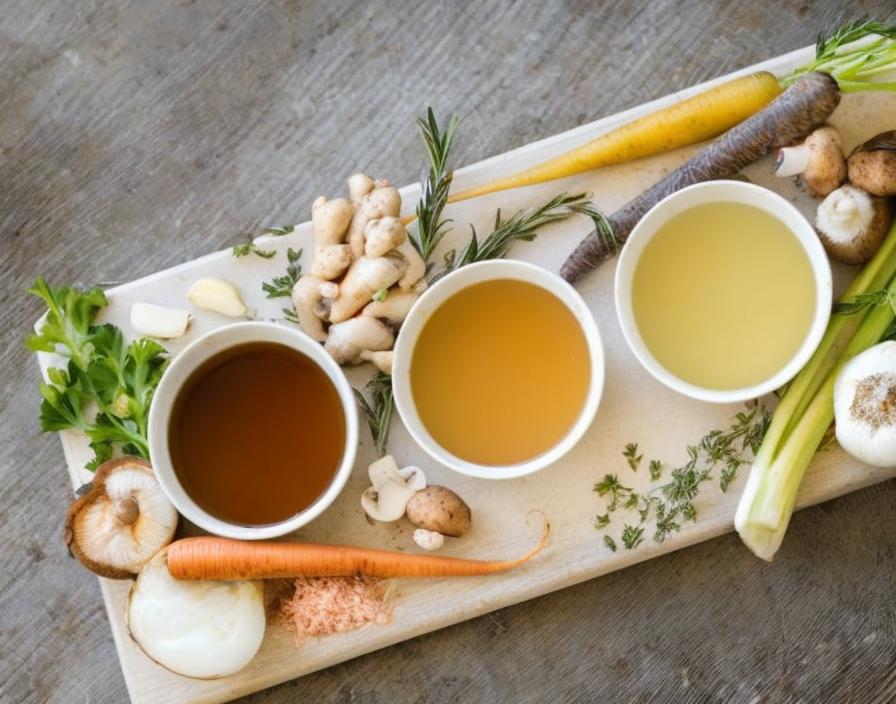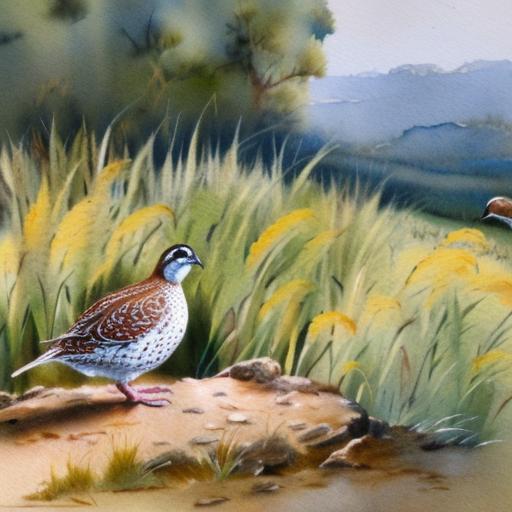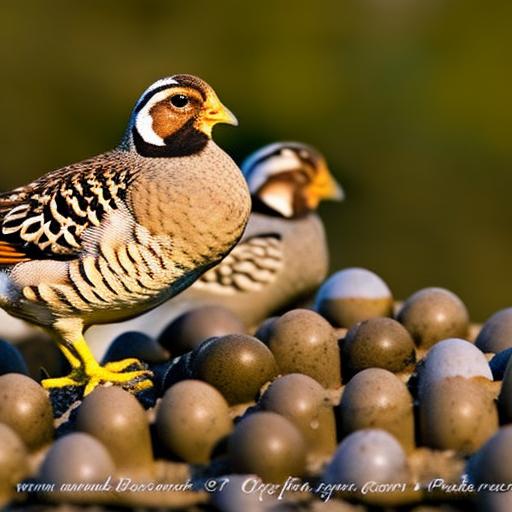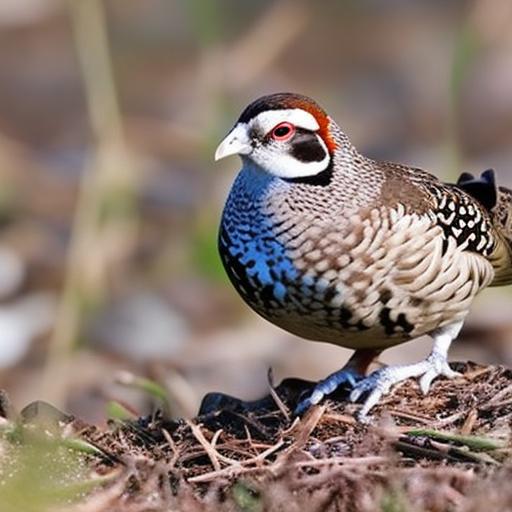Quail breeding stock refers to the birds that are selected and maintained for the purpose of producing offspring for meat, eggs, or hunting. When it comes to quail breeding, it is important to understand the characteristics and traits that make for good breeding stock. Breeding stock should be healthy, have good genetics, and be able to produce high-quality offspring. It is also important to consider the age and reproductive history of the birds when selecting breeding stock. Understanding the specific needs and requirements of quail breeding stock is essential for successful breeding and production.
Quail breeding stock should be carefully selected based on their physical attributes, such as size, color, and feather quality. Additionally, their behavior, temperament, and ability to adapt to different environments should also be taken into consideration. It is important to choose breeding stock that exhibit desirable traits and characteristics that will be passed on to their offspring. Understanding the genetic makeup of the breeding stock is crucial in order to produce healthy and productive offspring. By understanding the specific needs and requirements of quail breeding stock, breeders can ensure the success of their breeding program and the overall health and productivity of their quail.
Key Takeaways
- Understanding Quail Breeding Stock:
- Quail breeding stock refers to the birds selected for breeding based on specific traits and characteristics.
- Breeding stock should be healthy, have good reproductive capabilities, and exhibit desirable traits for the offspring.
- Selecting the Right Breeding Stock:
- Choose breeding stock with good genetic traits such as high egg production, strong immune system, and desirable body size.
- Avoid inbreeding by selecting unrelated birds to maintain genetic diversity and reduce the risk of genetic abnormalities.
- Housing and Care for Quail Breeding Stock:
- Provide adequate space, nesting boxes, and clean bedding for breeding stock to ensure their comfort and well-being.
- Maintain a balanced diet with proper nutrition and access to clean water to support the health and reproductive capabilities of the breeding stock.
- Managing Quail Breeding Stock Health:
- Regularly monitor the health of breeding stock for signs of illness or disease and promptly address any health issues.
- Implement biosecurity measures to prevent the spread of diseases and maintain a clean and hygienic environment for the breeding stock.
- Breeding and Reproduction of Quail:
- Create optimal breeding conditions by providing a suitable environment, proper nutrition, and minimizing stress for the breeding stock.
- Monitor egg production, fertility, and hatch rates to ensure successful reproduction and maintain a healthy breeding stock.
- Evaluating and Selecting Offspring:
- Assess the offspring for desirable traits such as size, color, and productivity to determine their suitability as future breeding stock.
- Select offspring with the best genetic potential to maintain and improve the quality of the breeding stock.
- Selling Quail Breeding Stock:
- Advertise and market the breeding stock to potential buyers, highlighting their desirable traits and genetic potential.
- Provide information on the health, lineage, and performance of the breeding stock to attract buyers and build a reputable breeding stock business.
Selecting the Right Breeding Stock
Selecting the right quail breeding stock is crucial for a successful breeding program. When choosing breeding stock, it is important to consider the purpose of the breeding program, whether it is for meat production, egg production, or hunting. Different purposes may require different traits and characteristics in the breeding stock. For example, if the goal is to produce quail for meat, then selecting breeding stock with good body conformation and growth rate would be important. On the other hand, if the goal is to produce quail for egg production, then selecting breeding stock with high egg production and good fertility would be essential.
In addition to considering the purpose of the breeding program, breeders should also consider the genetic diversity of the breeding stock. Genetic diversity is important for maintaining a healthy and productive population of quail. It is important to avoid inbreeding and select breeding stock from different genetic lines in order to maintain genetic diversity and avoid genetic abnormalities. Selecting the right breeding stock also involves evaluating the health and reproductive history of the birds. It is important to choose breeding stock that is healthy, free from diseases, and has a good reproductive track record. By carefully selecting the right breeding stock, breeders can ensure the success of their breeding program and the overall health and productivity of their quail.
Housing and Care for Quail Breeding Stock
Proper housing and care are essential for maintaining healthy and productive quail breeding stock. When it comes to housing quail breeding stock, it is important to provide adequate space, ventilation, and protection from predators. The housing should also be designed to provide a comfortable and stress-free environment for the birds. Additionally, proper sanitation and cleanliness are crucial for preventing diseases and maintaining the health of the breeding stock.
Care for quail breeding stock involves providing a balanced diet that meets their nutritional needs. The diet should include a high-quality commercial feed supplemented with fresh greens, grains, and protein sources. It is also important to provide clean water at all times to ensure proper hydration. In addition to nutrition, care for quail breeding stock also involves monitoring their health and behavior on a regular basis. Any signs of illness or distress should be addressed promptly to prevent the spread of disease and maintain the overall health of the breeding stock.
Managing Quail Breeding Stock Health
Managing the health of quail breeding stock is essential for ensuring the success of a breeding program. Preventive measures such as vaccination, parasite control, and biosecurity protocols should be implemented to minimize the risk of disease outbreaks. Regular health checks should be conducted to monitor the overall health and well-being of the breeding stock. Any signs of illness or abnormalities should be addressed promptly to prevent the spread of disease and maintain the productivity of the breeding stock.
In addition to preventive measures, it is important to have a good relationship with a veterinarian who specializes in avian health. A veterinarian can provide guidance on disease prevention, treatment, and overall health management of quail breeding stock. Proper record-keeping is also important for managing the health of quail breeding stock. Keeping detailed records of vaccinations, treatments, and health checks can help identify trends and patterns in the health of the breeding stock. By effectively managing the health of quail breeding stock, breeders can ensure the success of their breeding program and maintain a healthy and productive population of quail.
Breeding and Reproduction of Quail
Breeding and reproduction are essential aspects of maintaining a productive population of quail. When it comes to breeding quail, it is important to understand their reproductive behavior and biology. Quail are known for their prolific egg production, with some species laying up to 300 eggs per year. Understanding the reproductive cycle of quail is crucial for successful breeding and production.
Breeding quail involves providing a suitable environment for mating and egg laying. This includes providing nesting boxes or areas with suitable nesting materials for the female quail to lay their eggs. It is also important to provide a balanced diet that meets their nutritional needs during the breeding season. Additionally, monitoring the behavior and interactions between male and female quail can help identify mating pairs and ensure successful reproduction.
Once eggs are laid, it is important to provide proper incubation conditions for hatching. This includes maintaining optimal temperature and humidity levels in an incubator or broody hen for natural incubation. Proper care should also be provided for newly hatched chicks to ensure their survival and growth. By understanding the breeding and reproductive behavior of quail, breeders can ensure successful reproduction and maintain a healthy population of quail.
Evaluating and Selecting Offspring

Evaluating and selecting offspring is an important aspect of maintaining a productive population of quail. When it comes to evaluating offspring, it is important to consider their growth rate, body conformation, egg production (if applicable), and overall health. Selecting offspring with desirable traits and characteristics is crucial for maintaining genetic diversity and improving the overall quality of the breeding stock.
In addition to physical traits, behavior and temperament should also be considered when selecting offspring. Offspring that exhibit good behavior, such as being calm and non-aggressive, are desirable for maintaining a stress-free environment within the flock. It is also important to consider the genetic diversity of offspring when selecting them for future breeding purposes. Avoiding inbreeding and selecting offspring from different genetic lines can help maintain genetic diversity within the population.
Proper record-keeping is essential for evaluating and selecting offspring. Keeping detailed records of each individual bird’s traits, characteristics, and genetic lineage can help identify potential candidates for future breeding purposes. By effectively evaluating and selecting offspring, breeders can improve the overall quality of their quail breeding stock and maintain a healthy and productive population of quail.
Selling Quail Breeding Stock
Selling quail breeding stock can be a lucrative venture for breeders looking to expand their operations or provide quality breeding stock to other enthusiasts. When it comes to selling quail breeding stock, it is important to market them effectively to potential buyers. This includes showcasing their desirable traits, characteristics, and genetic lineage that make them suitable for breeding purposes.
In addition to marketing, it is important to provide proper care and maintenance for quail breeding stock that are being sold. This includes ensuring they are healthy, free from diseases, and have been properly vaccinated and treated as needed. Providing potential buyers with detailed information about the birds’ health history, genetic lineage, and any other relevant information can help build trust and confidence in the quality of the breeding stock being sold.
It is also important to establish clear terms and conditions for selling quail breeding stock, including pricing, delivery options, and any guarantees or warranties offered. Building a good reputation as a reliable source of quality quail breeding stock can help attract repeat customers and expand the reach of your business. By effectively marketing and selling quail breeding stock, breeders can generate income while also contributing to the growth and improvement of the quail industry as a whole.
In conclusion, understanding quail breeding stock involves careful consideration of their traits, characteristics, genetics, housing, care, health management, reproduction, evaluation of offspring, and selling strategies. By focusing on these key aspects, breeders can ensure the success of their breeding program while maintaining a healthy and productive population of quail. Whether it’s for meat production, egg production, hunting purposes or simply as pets, proper management of quail breeding stock is essential for achieving success in this rewarding endeavor.
If you’re looking to start a quail breeding operation, it’s essential to have high-quality breeding stock. Proper housing and care are crucial for maintaining healthy quail flocks. For tips on creating a suitable environment for your quail, check out this article on building a farmhouse chicken coop. Additionally, understanding the mating season and behavior of turkeys can provide valuable insights into managing quail breeding. Learn more about turkey mating seasons in this informative article on Poultry Wizard. Lastly, ensuring a well-designed floor for your chicken coop can also benefit your quail breeding stock. Find out how to create an optimal floor for your coop in this article on Poultry Wizard.
FAQs
What is quail breeding stock?
Quail breeding stock refers to a group of quails that are selected and bred for the purpose of producing offspring with desirable traits such as high egg production, fast growth, and disease resistance.
What are the characteristics of good quail breeding stock?
Good quail breeding stock should exhibit traits such as high egg production, fast growth, good feed conversion, and resistance to common diseases. They should also have good conformation and be free from genetic defects.
How do you select quail breeding stock?
Quail breeding stock should be selected based on their physical characteristics, such as body size, feather quality, and overall health. Additionally, their genetic background and performance records should be considered when selecting breeding stock.
How do you maintain quail breeding stock?
Maintaining quail breeding stock involves providing them with a balanced diet, clean water, and a suitable living environment. Regular health checks and vaccinations are also important to ensure the well-being of the breeding stock.
What are the benefits of using high-quality quail breeding stock?
Using high-quality quail breeding stock can lead to improved productivity, better disease resistance, and overall better performance in the quail farming operation. It can also help in maintaining the genetic integrity of the quail population.
Meet Walter, the feathered-friend fanatic of Florida! Nestled in the sunshine state, Walter struts through life with his feathered companions, clucking his way to happiness. With a coop that’s fancier than a five-star hotel, he’s the Don Juan of the chicken world. When he’s not teaching his hens to do the cha-cha, you’ll find him in a heated debate with his prized rooster, Sir Clucks-a-Lot. Walter’s poultry passion is no yolk; he’s the sunny-side-up guy you never knew you needed in your flock of friends!







